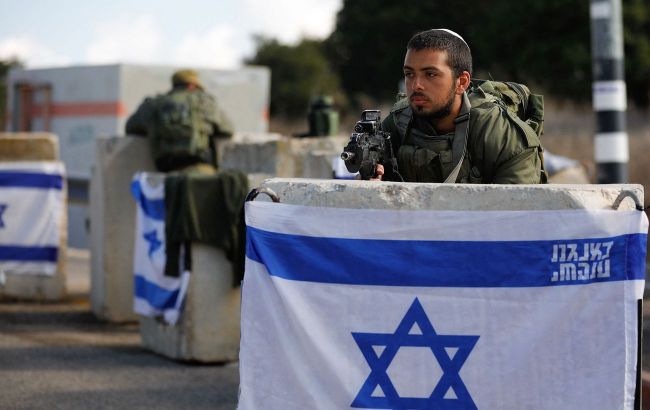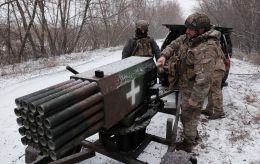Hezbollah from Lebanon fires at Israel, IDF responds with fire
 Israel attacks Hezbollah positions in Lebanon (photo: Getty Images)
Israel attacks Hezbollah positions in Lebanon (photo: Getty Images)
The Islamic militant group Hezbollah has shelled Israeli territory, prompting the Israel Defense Forces (IDF) to respond with fire on Lebanon, according to the IDF's social media account on X.
It was reported that around 21:44, militants from Lebanon launched rockets at the Western Galilee region. Some of the rockets were intercepted by air defense systems, while the rest fell in open areas. There have been no reports of casualties.
Shortly after the attack, the IDF struck a Hezbollah launch site in the Yater area of southern Lebanon, from which the rockets were fired.
Additionally, Israeli artillery targeted threats in the Rmaych and Ramyeh areas of southern Lebanon.
The Times of Israel reported that Hezbollah has claimed responsibility for the shelling of the Western Galilee.
In their statement, the militants asserted that they launched dozens of rockets at the northern border community of Metzuba.
The attack was reportedly in retaliation for an Israeli strike on the Lebanese village of Chamaa on August 1, which resulted in the deaths of four Syrians and injuries to several Lebanese civilians.
Escalation in the Middle East
In the past two days, relations between Israel, Iran, and Lebanon have severely escalated, raising concerns about a large-scale regional war in the Middle East.
On July 30, the Israeli military carried out an airstrike on Beirut, the capital of Lebanon, resulting in the death of Hezbollah commander Fouad Shukr.
On the same day, an airstrike in Tehran killed Ismail Haniyeh, one of the leaders of the Palestinian group Hamas.
Following these events, Iran's leader ordered a retaliatory strike against Israel.
The United Nations Security Council held an emergency meeting to prevent the outbreak of war, while EU and US diplomats conducted urgent negotiations given the escalating situation.
For more on whether these events in the Middle East could escalate into a larger conflict, read the article by RBC-Ukraine.

